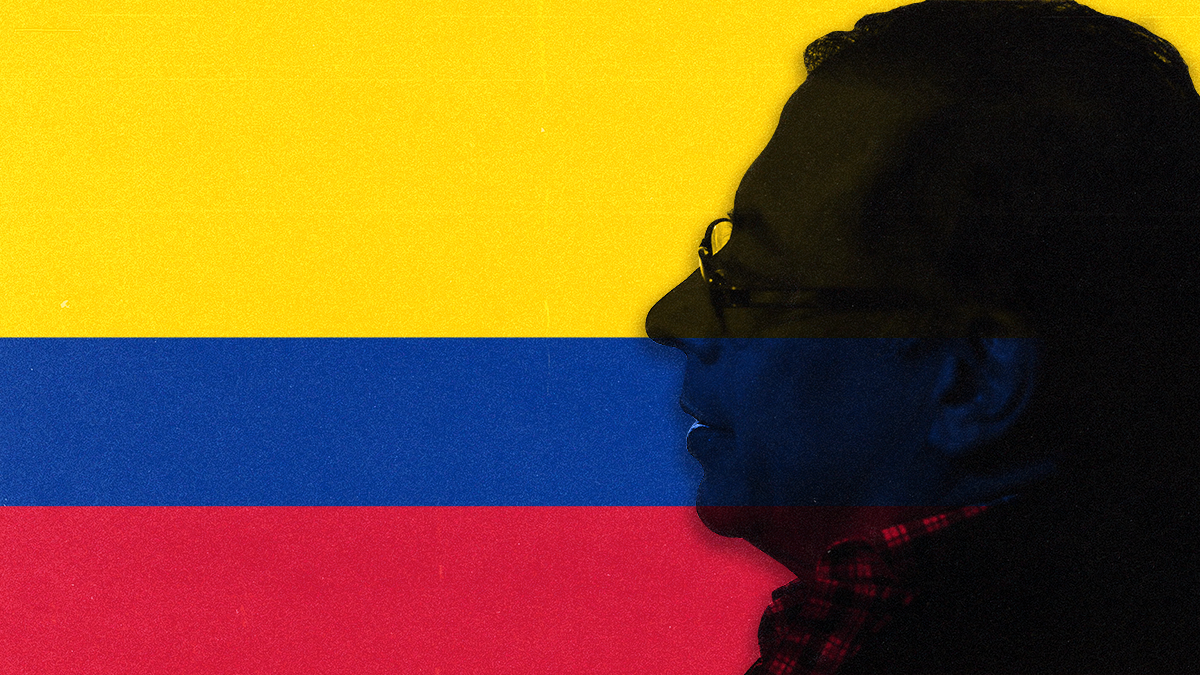This Sunday, Gustavo Petro will take office as the first left-wing president in Colombia’s history. Petro, a one-time guerilla who rose to become mayor of Bogotá and later opposition leader in the Senate, was elected in June on a bold promise to crack open access to economic and political power in a country long governed by an insular elite.
On the campaign trail, he pledged many things: to secure jobs for all, make education free, wean the country off of oil exports, see through a major land reform to broaden access to arable plots, rein in the police, and negotiate with remaining guerilla groups who have rejected the 2016 peace accords between the government and the FARC militants.
Following the huge social protests that rocked the country during the pandemic, his message resonated. While his critics saw the makings of a 21st-century socialist like those who had wrecked neighboring Venezuela, his supporters saw the chance to unlock the promise of Colombia for a much wider swathe of its people.
During the presidential transition, Petro — notoriously a headstrong leader with a messianic sense of connection with “the people” — has softened his tone and built bridges with establishment politicians. He tapped an experienced centrist, José Antonio Ocampo, as his finance minister in a move meant to reassure foreign investors at least as much as domestic ones. And he cobbled together a coalition of leftist and centrist parties that gives him a majority in Colombia’s fractious Congress.
But all of that was just the warm-up. This Sunday he steps onto the field.
What are his biggest early challenges going to be? Here are a few.
It’s the economy, estúpido. Colombians are currently suffering the highest levels of inflation in more than 20 years. Unemployment is above 10%, and the pandemic pushed the poverty rate close to 40%. Although polls show Colombians are starting to feel more optimistic about the economic recovery, two-thirds still say things are moving in the wrong direction. With the US raising interest rates and the global economy in limbo, Petro isn’t going to get much help from abroad. But few things will determine perceptions of Petro’s success more than how ordinary Colombians feel about the economy.
Finding the money. Colombia has run deficits for years, and emergency spending during the pandemic made them worse. But Petro’s reform agenda envisions even more government outlays. For example, says Colombian political journalist Camila Zuluaga, "he promised that education was going to be free -- perfect, but where is the money for that going to come from?”
Petro – who has pledged not to blow up the budget – has an answer: a huge tax reform that would raise more than 10 billion dollars. He is hoping to limit tax increases only to big companies and the rich, but it remains to be seen whether he can avoid increasing the burden on ordinary Colombians as well. A botched but far smaller tax reform back in 2020 did just that, and triggered massive street protests.
Dealing with the hard men. As a former guerilla himself, Petro isn’t popular with the Colombian military, and his campaign proposal to strip the army’s control over local police and give it to the interior ministry certainly didn’t help. But his appointment of Iván Velazquez, an anti-corruption and human rights jurist, as defense minister could inflame things more. “As an opening salvo in what was always going to be an antagonistic relationship, it was provocative for sure,” says Brian Winter, editor in chief of Americas Quarterly. And if Petro falls out with the military it could complicate his ability to improve the security situation in the country, or to negotiate from a position of strength with holdout guerilla groups.
The gringos are watching too. Colombia is Washington’s closest ally in South America. For decades Bogotá has been a major recipient of US military aid, a close trade partner, a faithful frontliner in the “war on drugs,” and a crucial bulwark against Venezuela. Petro has suggested that he might take a very different approach – reaching out to Venezuela, renegotiating aspects of the US-Colombia free trade deal, and revisiting the (admittedly failed) approaches to coca eradication.
Time is short. Petro, like all Colombian presidents, will be limited to just one four-year term, and experts say that most of the heavy lifting will have to come in the first year, when his coalition is happiest and his public support is strongest.
But if he is unable to maintain compromises with other non-leftist parties – or with his natural opponents among the monied elite – things could get ugly. For one thing, notes Zuluaga, Petro is a leader who can put tens of thousands of people on the streets, just as he did in 2013 when, as mayor of Bogotá, he was temporarily sacked in a scandal over municipal waste collection. "I don't think it would happen in the first year," says Zuluaga, "but that is certainly a weapon that he has."
But there’s also the risk of failing to deliver enough for his own core constituents. That, says Yann Basset, a politics professor at Bogotá’s Rosario university, could cause rifts even within the left-wing core of his coalition.
“There are very strong expectations of change,” says Basset, “but among his opponents there are real fears. It’s a honeymoon period right now, but these first few months are going to show what kind of room for maneuver Petro really has.”
- Colombia's new president: Biden team aware the war on drugs has failed - GZERO Media ›
- Colombia's new president: Biden team aware the war on drugs has failed - GZERO Media ›
- Colombia's new president Gustavo Petro: Biden team aware the war on drugs has failed - GZERO Media ›
- From stunted capitalism to economic growth in Colombia - GZERO Media ›
- Who is Colombia's new president? - GZERO Media ›
- How to solve Colombia's cocaine problem - GZERO Media ›
